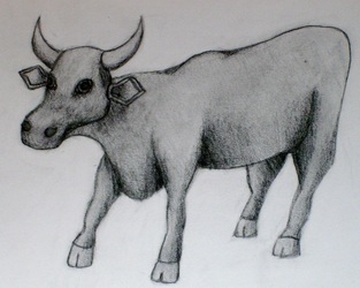|
If you only read one article on creativity in your life then this should be the one. It is interesting, relevant, and gives doable ideas within reach of most of us to build creativity. And clearly there is a need for it. ARTICLE THE CREATIVITY CRISIS Po Bronson & Ashley Merryman 10 July 2010 Like intelligence tests, Torrance’s test—a 90-minute series of discrete tasks, administered by a psychologist—has been taken by millions worldwide in 50 languages. Yet there is one crucial difference between IQ and CQ scores. With intelligence, there is a phenomenon called the Flynn effect—each generation, scores go up about 10 points. Enriched environments are making kids smarter. With creativity, a reverse trend has just been identified and is being reported for the first time here: American creativity scores are falling. Kyung Hee Kim at the College of William & Mary discovered this in May, after analyzing almost 300,000 Torrance scores of children and adults. Kim found creativity scores had been steadily rising, just like IQ scores, until 1990. Since then, creativity scores have consistently inched downward. “It’s very clear, and the decrease is very significant,” Kim says. It is the scores of younger children in America—from kindergarten through sixth grade—for whom the decline is “most serious.” Po Bronson & Ashley Merryman Really you should read the article but here is my bullet list from reading to get you interested. THINGS WE CAN DO TO DEVELOP CREATIVITY • Let kids ask questions and give them freedom to find the answers • Encourage uniqueness, yet provide stability • Be highly responsive to kids' needs • Challenge kids to develop skills • Hardship can create a need to become more flexible • Free play - acting out characters (role playing), voicing someone else's point of view • Paracosms play - fantasies of entire alternative worlds • Tolerate unconventional answers • Allow some detours of curiosity • Create problem/solution exercises • Recognize and nurture creativity • Emphasize idea generation • Use a problem-based learning approach • Fact-finding is a stage in the creative process • Deep research is a stage in the creative process • Solve a problem • Practice creative activities to recruit the brains' creative networks and gradually change neurological patterns • Apply approach as an everyday process of work or school • Process: Fact finding, problem finding, idea finding, solution finding, develop plan, execute plan • Encourage openness, playfulness SOME THINGS THAT COME FROM CREATIVITY • Less despair • Handles stress better • Overcomes the bumps in life their way • More confidence about future • More confidence in their ability to succeed • Confidence in ability to come up with alternatives that would aid them despite the problems • Human ingenuity • Leadership competency • Creative solutions • Original ideas • Control incoming stimuli to brain, blocking out distraction, increasing concentration List any additional things you find.
1 Comment
Big Fan
10/21/2010 12:33:39 pm
Another Great Post!
Reply
Leave a Reply. |
Shannon's Studio
�
Archives
March 2023
|
